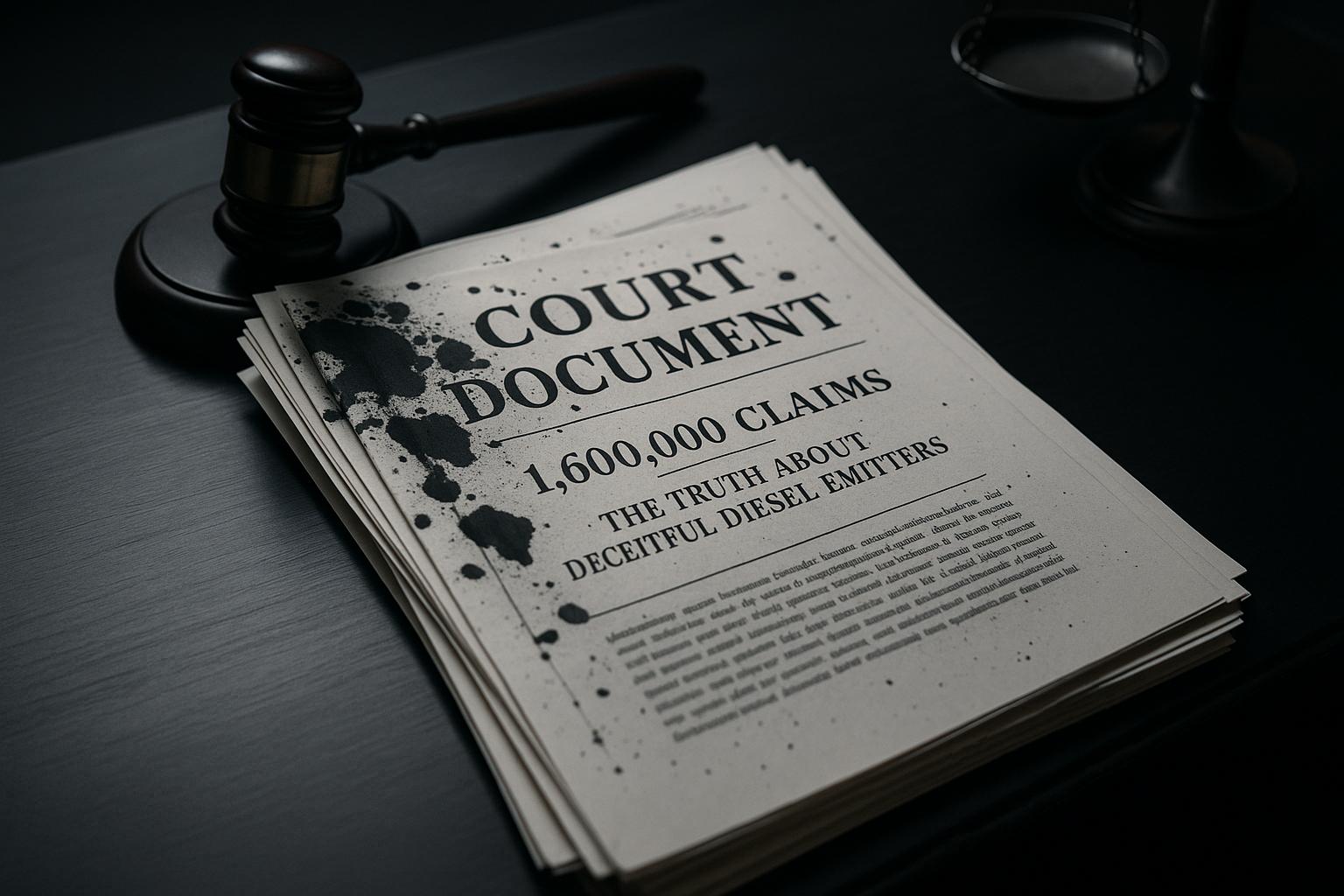More than a million motorists in the UK are set to have their legal claims against some of the world’s leading car manufacturers heard at the High Court from Monday in what is described as the largest case of its kind in English history. Approximately 1.6 million vehicle owners are suing over allegations that diesel cars made from 2009 onwards contained “prohibited defeat devices” (PDDs) — technology that permitted vehicles to detect when emissions tests were being conducted and subsequently alter their performance to meet regulatory limits, effectively cheating the system.
The legal action, believed to be worth at least £6 billion, targets over a dozen manufacturers including Mercedes-Benz, Renault, Nissan, Ford, Peugeot, Citroën, Volkswagen, BMW, Jaguar Land Rover, Toyota, and others. The claims involve some 1,500 defendants when dealerships are also taken into account, highlighting the unprecedented scale of the litigation. Those bringing the claims purchased, leased, or otherwise acquired affected diesel vehicles, primarily residing in England and Wales but also spanning other parts of the UK.
The trial, presided over by Lady Justice Cockerill, is set to begin at the Royal Courts of Justice in London and will initially focus on “sample vehicles” from five manufacturers: Mercedes-Benz, Renault, Nissan, Ford, and Peugeot/Citroën. The court's ruling in this initial phase is expected to bind the other manufacturers involved. The trial itself is slated to last about three months, concluding before Christmas, with further legal arguments scheduled for March 2026. A ruling on liability is anticipated next summer, followed by a separate trial to determine any compensation due, expected in the autumn of 2026.
Law firm Leigh Day, representing many of the claimants, has characterised the case as potentially exposing one of the most egregious breaches of corporate trust in modern times. Senior partner Martyn Day commented that if the claims are upheld, it would confirm that millions of people across the UK have been breathing in greater levels of harmful emissions than they were told, potentially jeopardising public health on a large scale.
The origins of these cases can be traced back to the 2015 Volkswagen emissions scandal, known widely as Dieselgate, when it was revealed that Volkswagen installed software to cheat emissions tests. Since then, investigations and legal actions have expanded globally, encompassing numerous other manufacturers and models suspected of similar practices.
The financial implications are significant, not only in terms of potential compensation payouts up to £6 billion, but also concerning the legal costs, which are projected to run into hundreds of millions of pounds for both claimants and defendants combined. Barrister Benjamin Williams KC estimated during earlier hearings that even a conservative valuation of £4,000 per claim would bring the total value of the litigation to 6 billion pounds.
Commenting on the matter, Mercedes owner Adam Kamenetzky emphasised the wider public interest at stake. Speaking to The Irish News, he said: “If these allegations are true, the regulators, the politicians and the public have been cheated by manufacturers who, it’s claimed, are profiting from their sale of diesel cars while flouting clean air laws and measures such as Ulez, which aim to improve public health.” He added that air pollution remains a leading cause of ill health and premature death worldwide and stressed the importance of holding those who may have lied or cheated accountable.
Campaign groups, including Mums for Lungs and over 50 other organisations, are also pressing for transparency and the full disclosure of documents believed to reveal the extent of the use of illegal defeat devices across the diesel vehicle market. They argue such disclosure is vital not only for legal proceedings but also for public awareness and health protection.
Defendants in the case have strongly denied the claims, resisting the allegations of installing defeat devices. The final outcomes of the trial and subsequent proceedings will have major ramifications for the automotive industry, regulators, and consumers alike, potentially setting significant precedents in corporate accountability and environmental law.
📌 Reference Map:
- Paragraph 1 – [1], [4], [6]
- Paragraph 2 – [1], [2], [3], [6]
- Paragraph 3 – [1], [5]
- Paragraph 4 – [1], [3], [5], [6]
- Paragraph 5 – [3], [1]
- Paragraph 6 – [1], [3]
- Paragraph 7 – [1], [4]
- Paragraph 8 – [7], [1]
- Paragraph 9 – [1], [2]
Source: Noah Wire Services
